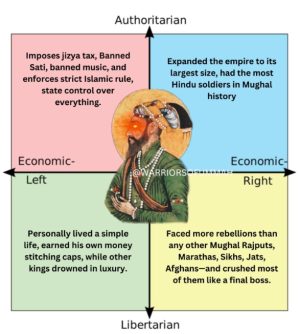- Joined
- Nov 25, 2023
- Runs
- 23,831
Pakistan has always put the hand of friendship towards India for a broader peace in the region but unfortunately all these good will gestures and endeavors have been met with hostility.
Recently, Pakistan invited Indian EAM to the SCO conference in Islamabad but still the Indian side didn't show any warmth and instead blamed Pakistan recklessly for a fishy incident like Pahalgam attacks. So bearing in my mind the current bloodshed in Balochistan, would it be plausible for Pakistan to wish for another leader like General Zia-ul-Haq just to deal with India.
A brief overview of Pakistan India relations under General Zia-ul-Haq
General Zia-ul-Haq played a significant role in shaping Pakistan's hostile stance against India. After coming to power through a military coup that deposed Zulfikar Ali Bhutto, Zia implemented a strategy known as "Bleed India with a Thousand Cuts," which involved covert warfare, militancy, and backing of Mujahideens aimed at liberating Kashmir and Punjab.
Zia's approach to India was marked by a mix of military brinkmanship and nuclear ambiguity. In a 1987 visit to India under the guise of watching a cricket match, Zia warned Indian Prime Minister Rajiv Gandhi that any attack on Pakistan could lead to a nuclear war with devastating consequences for India, emphasizing that while Pakistan might be destroyed, the Muslim community would survive, but Hinduism could vanish from the earth. This threat highlighted the intense hostility and the high stakes of the Pakistan-India conflict during his regime.
Despite these tensions, Zia also engaged in limited diplomacy, such as his unannounced visit to India in 1987, which was part of "cricket diplomacy" aimed at easing border tensions. However, his tenure was largely defined by the militarization of Pakistan's policy towards India and the promotion of Islamist policies internally.
In summary, Zia-ul-Haq's stance against India combined aggressive covert operations, nuclear deterrence threats, and occasional diplomatic overtures, all within the broader context of Pakistan's long-standing conflict with India over Kashmir and regional dominance
Recently, Pakistan invited Indian EAM to the SCO conference in Islamabad but still the Indian side didn't show any warmth and instead blamed Pakistan recklessly for a fishy incident like Pahalgam attacks. So bearing in my mind the current bloodshed in Balochistan, would it be plausible for Pakistan to wish for another leader like General Zia-ul-Haq just to deal with India.
A brief overview of Pakistan India relations under General Zia-ul-Haq
General Zia-ul-Haq played a significant role in shaping Pakistan's hostile stance against India. After coming to power through a military coup that deposed Zulfikar Ali Bhutto, Zia implemented a strategy known as "Bleed India with a Thousand Cuts," which involved covert warfare, militancy, and backing of Mujahideens aimed at liberating Kashmir and Punjab.
Zia's approach to India was marked by a mix of military brinkmanship and nuclear ambiguity. In a 1987 visit to India under the guise of watching a cricket match, Zia warned Indian Prime Minister Rajiv Gandhi that any attack on Pakistan could lead to a nuclear war with devastating consequences for India, emphasizing that while Pakistan might be destroyed, the Muslim community would survive, but Hinduism could vanish from the earth. This threat highlighted the intense hostility and the high stakes of the Pakistan-India conflict during his regime.
Despite these tensions, Zia also engaged in limited diplomacy, such as his unannounced visit to India in 1987, which was part of "cricket diplomacy" aimed at easing border tensions. However, his tenure was largely defined by the militarization of Pakistan's policy towards India and the promotion of Islamist policies internally.
In summary, Zia-ul-Haq's stance against India combined aggressive covert operations, nuclear deterrence threats, and occasional diplomatic overtures, all within the broader context of Pakistan's long-standing conflict with India over Kashmir and regional dominance









